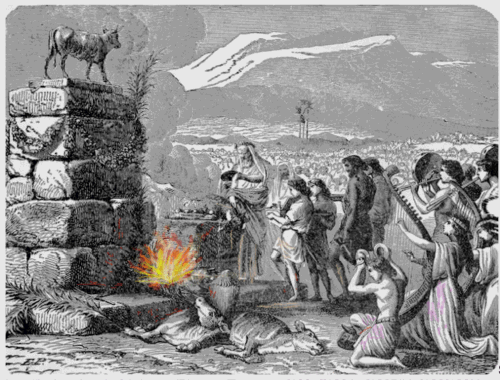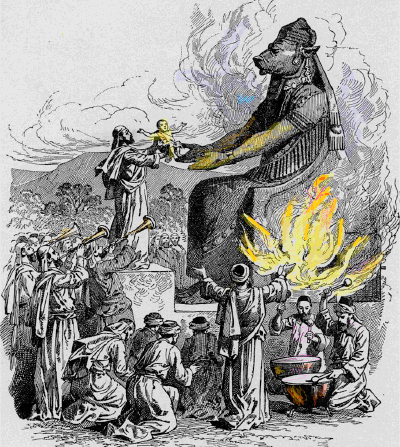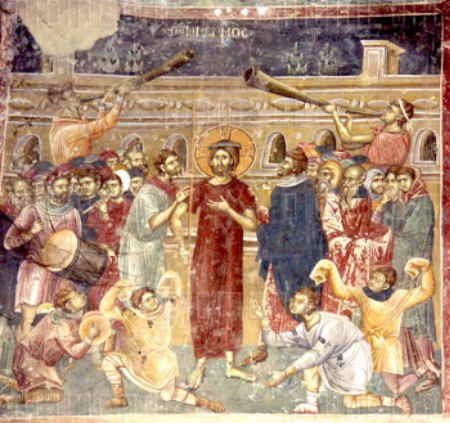Pauo means stop the polemos or battle, fight, war: stop levying war against another, anaireisthai or airô egeirein, kathistanai, epagein to begin a war; p. poieisthai to make war, -- opp. to p. anapauein, kataluesthai to put an end to it, make peace, all in attic
The singing which is to PAUSE to give rest is b. mostly of things, make an end of, stop, abate
Stop the: Melōd-eō , A. chant, sing, Ar.Av.226, 1381, Th.99:—Pass., to be chanted, “ta rhēthenta ē melōdēthenta” Pl.Lg.655d, cf. Chamael. ap. Ath. 14.620c; to be set to music, Cleanth. ap. Phld.Mus.p.98 K.; ta melōdoumena diastēmata used in music, Plu.2.1019a. II. chant, choral song, melôidias poiêtês, lullaby, generally, musispauō , Il.19.67, etc. ;
Eph. 5:17 Wherefore be ye not unwise,
but understanding what the WILL of the Lord is.
Eph. 5:18 And be not drunk with wine, wherein is excess;
but be filled with the SPIRIT;
John 6:63 It is the SPIRIT that quickeneth;
The flesh profiteth nothing: the WORDS that I SPEAK unto you,
they are SPIRIT, and they are life.
Eph. 5:19 SPEAKING to yourselves
in psalms and hymns and spiritual songs,
[BUT] singing and making melody IN your heart to the Lord;
PSALLO is never used to mean MUSICAL melody.
psallentes
Stop the: lupas ōdais pause. E.Med.197 (anap.), etc. ; p. toxon let the bow rest, Od.21.279
Stop the: 2. c. acc. pers. et gen. rei, hinder, keep back, or give one rest, from a thing, p. Hektora makhēs, ponoio Akhilēa, Thamurin aoidēs,
Lupas ōdais pause Eur. Med. 197. [190] You would be right to call men of old foolish, not at all wise: for while they invented songs for festivities, banquets, and dinners and added pleasant sounds to human life, [195] no one discovered how to put an end to mortals' bitter griefs with music and song sung to the lyre. It is because of these griefs that deaths and terrible disasters overthrow houses. It would have been a gain for mortals [200] to cure these ills by song. Where there are feasts of plenty, why do they raise the loud song to no purpose?
Pauo means:
Stop worshipping the MUSES
Stop the: 3.
c. pres. part., stop a person from
leave off doing . . , hoth' hupnos heloi, pausaito te nēpiakheuōn when he
stopped playing
Stop the: later paēsomai (ana-) Apoc.14.13
Stop the: of one singing
or speaking, 17.359,
Hdt.7.8.d : generally,
Med. denotes willing, Pass. forced,
cessation.
Stop the rhapsōd-os
, o(, A. reciter of Epic
poems, sts. applied to the bard who recited
his own poem, professional
reciters, esp. of the poems of Homer,
Hdt.5.67,
Pl.Ion
530c, etc.: also rh. kuōn, ironically,
of the Sphinx who chanted her riddle,
S.OT391
(Prob. from rhaptō, aoidē;
Hes.Fr. 265
speaks of himself and Homer as en nearois humnois rhapsantes aoidēn,
and Pi.N.2.2
calls Epic poets rhaptōn epeōn aoidoi:
Stop the orkheomai ,
2. represent by dancing or pantomime,
III. Act. orkheō , make
to dance (v. Pl.Cra.407a),
is used by Ion Trag.50,
ek tōn aelptōn mallon ōrkhēsen phrenas made
my heart leap
Stop the kata-pauô put an end to, stop 3. depose from power, k. tina tês archês, tês basilêïês, Hdt.4.1, 6.64; tous turannous Id.5.38 , cf. 2.144, 7.105; Mousas depose them from their honours, cease to worship them,




